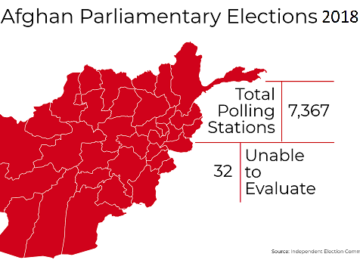On Tuesday, the World Bank disclosed that Afghan businesses express mounting apprehension regarding the country’s economic future, as outlined in its latest Private Sector Rapid Survey (PRSS).
Businesses persevere Despite significant challenges, such as a severely constrained banking and financial sector and subdued consumer demand. However, the latest findings from the third round of the PSRS highlight a notable uptick in the number of respondents expressing apprehension about the future. Additionally, concerns regarding restrictions on women’s economic activities have emerged as a prominent issue, further complicating the financial landscape.
The latest survey conducted in spring 2023 offers fresh insights into the business environment, highlighting the hurdles encountered by formal small, medium, and large firms in the country.
The report said that “Afghan businesses struggle to reach pre-August 2021 levels of operations, although the private sector shows signs of recovery since the first round of this survey in November 2021. Over one-third of surveyed firms report operating below capacity, and 8 per cent, primarily women-owned, are either temporarily or permanently closed.”
In 2023, most surveyed firms faced a drop in demand for their goods and services, with 80 percent experiencing a decline over the preceding six months. Small and medium-sized enterprises were notably impacted, with 80 percent reporting decreased demand, compared to 69 percent among larger firms.
The report also highlighted that “small and women-owned firms are more prone to closure, indicating their heightened vulnerability to economic shocks compared to men-owned businesses.”
Surveyed firms have seen a notable decline in employment levels compared to August 2021. With many Afghans leaving the country or turning to informal work, shrinking demand has compelled firms to cut investments and lay off staff, nearly doubling unemployment rates since August 2021.
Female employment has significantly dropped, with most women now employed by women-owned businesses. This has led to 50 percent of firms surveyed in March 2023 having no female employees, contrasting with only 10 percent reporting no male employees.
Challenges in the banking sector have led to correspondent banks’ limited transactions with Afghan banks, impacting domestic and international trade activities and increasing transaction costs. As a result, firms are increasingly relying on Hawala payment systems and cash transactions.
Additionally, survey findings reveal a low incidence of unofficial payments and bribes, with 92 per cent of firms reporting no such payments in the past six months. However, engagement with the interim Taliban administration (ITA) has proven ineffective in resolving business issues for over 60 per cent of surveyed firms. Women-owned and small businesses face more significant difficulties engaging with the ITA and have lower issue resolution rates than men-owned and larger enterprises.
The Article originally appeared in www.khaama.com March 21, 2024 Original Link








